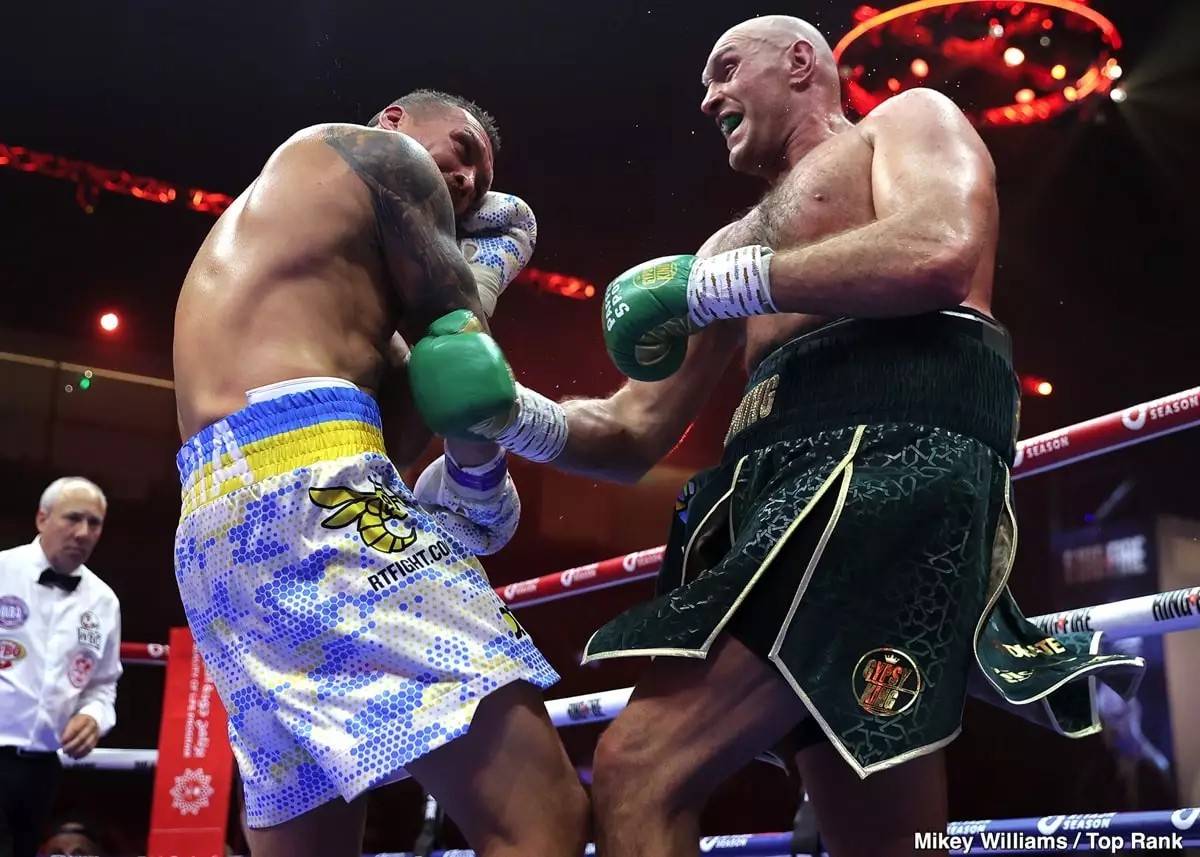As the boxing world gears up for the much-anticipated rematch between Tyson Fury and Oleksandr Usyk on December 21st, the narrative surrounding Fury’s mindset is as captivating as the fight itself. Instead of solely focusing on the physical preparation for what many expect to be an intense match, a keen observation reveals an intriguing layer to Fury’s psyche—his inclination to portray himself as a victim. This mentality might compromise his ability to approach the fight with the resilience and strategy needed to defeat a formidable opponent like Usyk.
Fury’s claims of being a victim of the judges’ decisions in their previous encounter signal a troubling mindset that could hinder his performance. He openly expressed his belief that he must secure victory through a knockout because he perceives an unfavorable bias from the judges. This pre-emptive assertion of victimhood is a double-edged sword, as it may serve as both a psychological defense mechanism and a potential excuse for any unfavorable outcome in the rematch.
Reflecting on their first bout, which took place on May 18th, it’s essential to scrutinize the judge’s scorecards and the fight itself. Despite displaying moments of resilience, Fury’s overall performance was marred by several rounds where he struggled to find his footing. Although he managed to claw back in the closing rounds, many observers, including boxing analysts, felt he was fortunate to escape with a split decision favoring him, especially given that one judge saw the fight as a narrow win for Fury at 114-113. The reality that Fury appeared to be dominated in key moments raises questions about whether he overstated his case for being wronged, rather than accepting responsibility for a performance that warranted more effort.
Fury’s overconfidence in his ability to appeal to the judges, claiming they would side against him no matter what, also highlights a lack of accountability for his previous shortcomings in the ring. His performance against Usyk was far from that of a champion level, and rehashing narratives of dubious judging only muddies the waters. The boxing community must consider whether this blaming culture could impede Fury’s performance in the rematch, potentially overshadowing his strategic planning by swaying him towards a victim mentality.
Contrasting with Fury’s mindset is Oleksandr Usyk, who represents an entirely different challenge, one that Fury has yet to fully grasp. Usyk’s skill set as a world-class fighter includes exceptional speed and technical proficiency. In their previous encounter, Usyk’s effective combinations and adaptability exposed weaknesses in Fury’s defense and speed. Fury’s past experiences with opponents like Deontay Wilder might have provided him with confidence, but the reality is that Usyk is not a static target; he is adaptable and intelligent in the ring, rendering Fury’s historical successes against Wilder largely irrelevant in this context.
Fury seems to underestimate how Usyk’s strategy may unfold in the rematch. Usyk’s previous reluctance to fully unleash on Fury during pivotal rounds may not be evident this time around. The change in referee could offer Usyk the opportunity to maintain a relentless offense, potentially deterring what has historically been Fury’s primary advantage—a size and power disparity. Therefore, Fury’s singular focus on achieving a knockout could become his Achilles’ heel if he fails to adapt to the unique challenges that Usyk brings to the table.
Fury’s assertion that he is entering the match as a challenger reflects a psychological shift that may fuel his desire to recapture glory. However, the notion of seeking a trilogy with Usyk seems ambitious; the real query is what follows a potential loss. As Fury prepares for a rematch that many are convinced is fraught with variables, he must confront the reality of defeat. Would he cling to a victim mentality, crafting a narrative to side-step accountability, or would he maturely accept Usyk’s superiority should that outcome arise?
Diving deeper, if Fury is defeated and he does pursue a trilogy as he suggested, the ramifications of losing could extend beyond his immediate boxing career. The implications could affect his marketability and future negotiations for high-stakes fights in divisions filled with elite competition—most prominently Anthony Joshua, and potentially forcing him to reevaluate his course.
As Tyson Fury approaches this pivotal rematch with Oleksandr Usyk, the layers of mental strategy will weigh heavily on his performance. While Fury’s focus on achieving a knockout underscores a fierce ambition, his victim mentality poses a significant risk if he fails to embrace the accountability and adaptability that elite boxing demands. These final weeks leading up to the fight will not only determine the physical state of both boxers but will also reflect the dynamics of expectation, responsibility, and struggle that define the sport of boxing as a whole.

